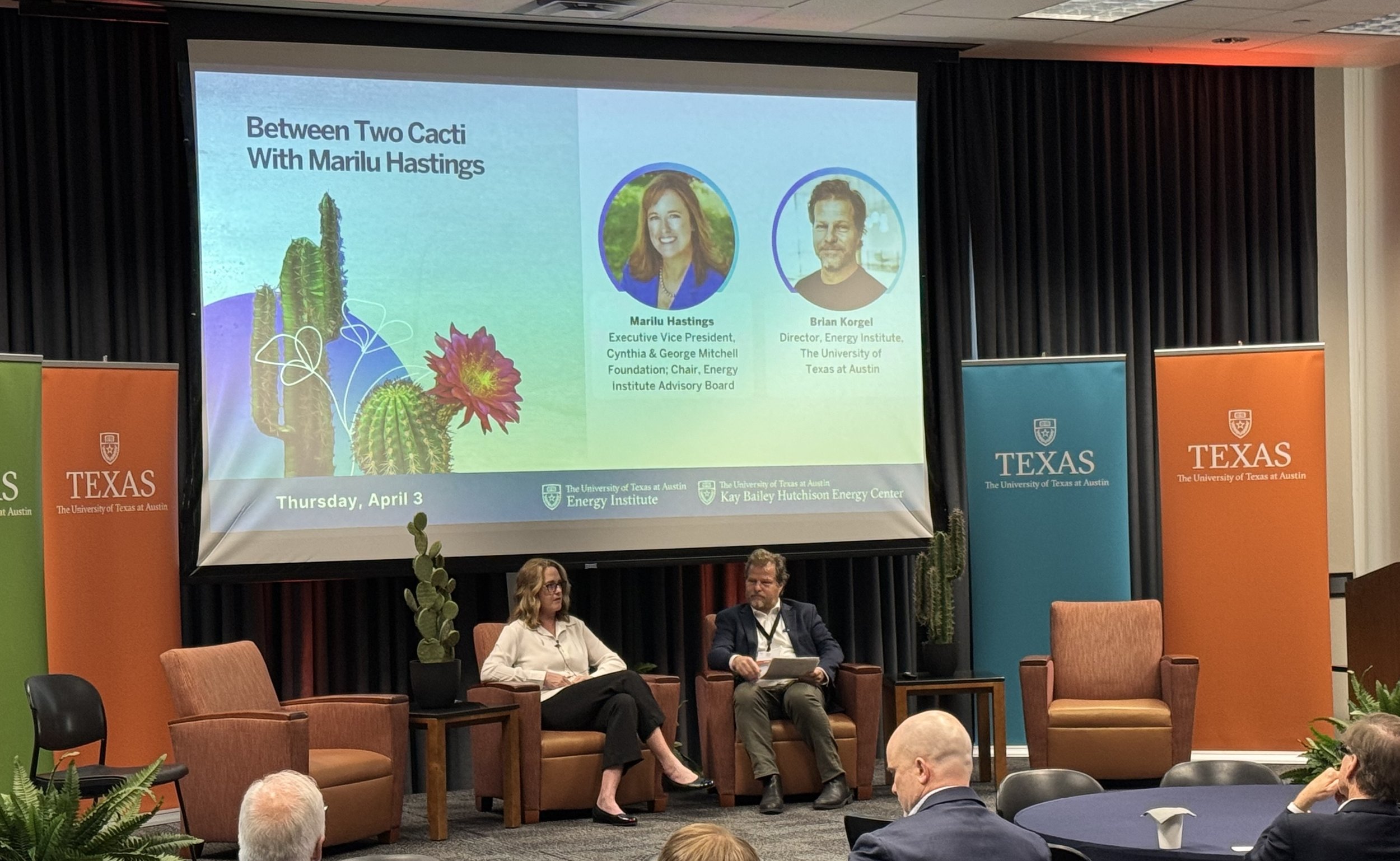Marilu Hastings on the Future of Energy—and Fairness—in the Permian
Marilu Hastings speaks to Brian Korgel at UT-Austin’s Energy Week
At UT-Austin’s annual Energy Week, PEDL founder and UT Energy Institute Advisory Board chair Marilu Hastings sat down with PEDL board member and UT Energy Institute Director Brian Korgel for a wide-ranging “Between Two Cacti” conversation. The two discussed the Permian Basin’s central role in the country’s energy present and future—and how efforts like the Permian Energy Development Lab (PEDL) aim to ensure that the region’s communities benefit from the innovation they help power.
Reflecting on her formative years in Midland, Hastings shared a personal perspective on how the region has changed, including the strain placed on local education, health care and infrastructure. Despite its status as the largest oil- and gas-producing region in the country—and an emerging force in renewables—she noted that the Permian often experiences wealth extraction without reinvestment. “The boom is as hard on the people as the bust,” she said, calling for a new model of long-term investment that creates shared opportunity and greater fairness.
That vision is at the heart of PEDL. Hastings described how PEDL is developing integrated energy systems that combine technologies—like carbon storage, geothermal, hydrogen production and produced water treatment—into cohesive networks that support cleaner, more reliable energy while generating local jobs and economic resilience. With initiatives like the Permian Integrated Energy System (PIES) already underway, PEDL is showing how multiple technologies can be co-located to maximize efficiency and impact. “You develop a workforce that can actually run this high-tech energy system,” she said, “and you invest back in the community.”
The conversation also touched on the role of philanthropy in energy innovation. Hastings described how the Cynthia and George Mitchell Foundation, where she is executive vice president, along with other “pragmatic climate funders,” supports science-based work that translates academic research into action. “We’re agnostic about electrons,” she said. “What matters is solving problems and driving progress.” She emphasized the need for partnerships between philanthropy, public agencies and private industry to tackle big questions—just as George Mitchell himself did, combining DOE support with entrepreneurial persistence to advance shale development.
In closing, Hastings underscored UT Austin’s unique role in solving what she called “the grand challenges of energy.” With 450 energy researchers and access to expansive university lands, UT is well-positioned to lead national efforts to test and scale new technologies. But the solutions, she emphasized, must work for real people in real communities—starting with those in the Permian. “There’s nowhere else in the world with such a concentration of resources, expertise, and land,” she said. “The energy transition is going to be decided in the Permian Basin.”

